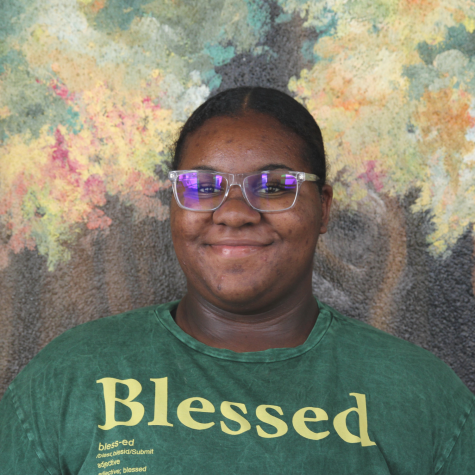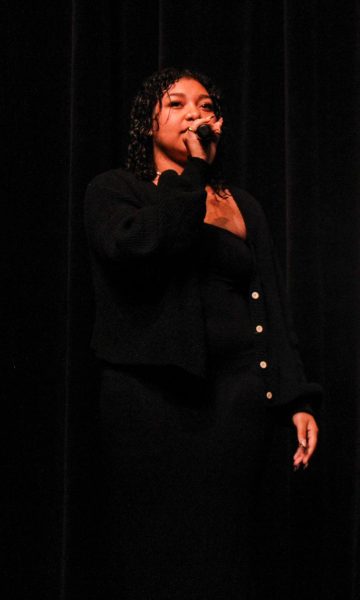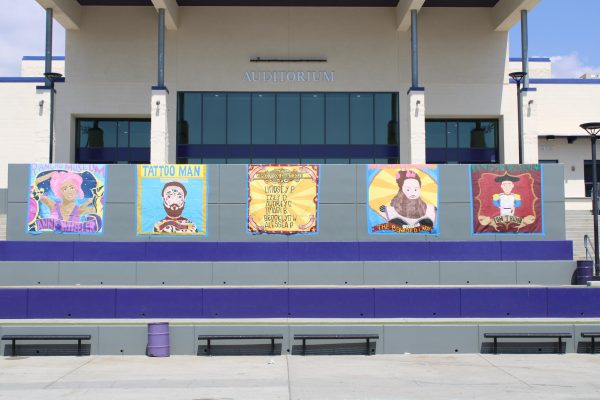February is Black History Month: here is why that is important
The Periodic Table of Black History is displayed on the windows of the auditorium.
February is Black History Month, a month where people participate in celebrating Black excellence and all the significant things that Black people have done. During this month, the country takes a moment to honor all the accomplishments and outstanding actions that African Americans have done in the past and are still doing today that have helped shape America.
In an interview with NPR, Sara Clarke Kaplan, the Executive Director of the Antiracist Research & Policy Center at American University in Washington, D.C., said, “there is no history without African American history.”
Black History Month grew out of “Negro History Week” in 1976 with the help of prominent African American leaders who stressed the importance of celebrating and honoring Black history like historian Dr. Carter G. Woodson. The history of this special month starts back in 1915 when Woodson and minister Jesse E. Moorland founded the Association for the Study of Negro Life and History (ASALH). This association’s importance was to highlight Black excellence and the achievements of people of African descent. In 1926, the ASALH sponsored the first National Negro History Week, which was done in the second week of February to correspond with Lincoln and Douglass’ birthdays. As a result, every president since then has dedicated the month of February as Black History Month.
One way that Rancho is celebrating Black History Month is by displaying the Periodic Table of Black History on the auditorium windows. BSU co-adviser Mr. Ellis Stevens, along with graphics teacher Ms. Lisset Becker and the graphics students, helped to create this display. Stevens said the display was created, “To help facilitate this and encourage conversations among our students.”
It’s important to remember all the African American people who have greatly impacted and influenced the country, some of those people being: Sojourner Truth, Katherine Johnson, Mary Jackson, Oprah Whinfrey, Barack Obama, Aretha Franklin, Stacey Abrams, Victor J. Glover, Nia DaCosta, Cynthia Marshall and many more.
All of these amazing people have had a great impact on everyone and most of them have been the first Black person in their line of work. From Katherine John son being the first Black woman to work at NASA to Nia DaCosta being the first Black woman to direct a Marvel film.
Ms. Jenna Jemison, one of the co-advisers of BSU, said, “I look forward to finding new ways to celebrate Black History Month. Whether that is finding a new Black-owned restaurant spot, a new artist or content creator to follow on social media, finding new authors for ‘First Chapter Fridays’ in my classroom, or just reading a new book to my kids about an African-American leader, February is a chance for me continue to expand my knowledge and experiences about Black history, achievements, and progress for myself, my family, and my students.”
She went on to talk about Woodson and how he “wanted to African Americans to see themselves represented beyond slavery.”
Jemison also listed some of her favorite African American leaders, which are, “Zora Neal Hudson, James Baldwin, Audre Lorde and Chimamanda Ngozi Adichie”
Jemison said that she couldn’t pick just one person because all the authors she listed have given her so much “courage, knowledge, and growth through their writings and activism.”
Jemison said, “Our campus does a phenomenal job of honoring Black history and achievements throughout the year, but, during Black History Month, we really offer a wide variety of events, experiences, presentations, etc. We, also, participated in the National African-American Read-in with our library, hosted a Black Cultural Celebration on our campus, and took students to the Black College Expo in Los Angeles. For Black History Month Spirit Week, ASB and BSU organized some lunchtime activities including a double dutch activity, which was a student favorite, and shared Black history facts and information to our students through morning announcements and the video bulletin. Our GOAL Saturday School, also, hosted Black cinema movie viewings for students as an extension of learning.”

Sierra Hall is a senior at RCHS and this is her second year in journalism. This is also her second year being a staff reporter for the school newspaper,...



